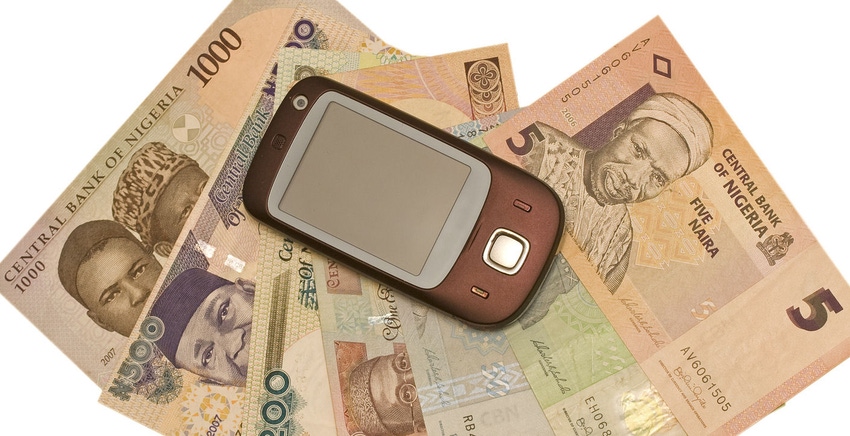Charles Niehaus is Consultant Mobile Money at the International Finance Corporation (IFC), part of World Bank Group. He will be a speaker in the Mobile Money programme at AfricaCom this year, with a case study on achieving interoperability through mobile financial services in Tanzania.
October 12, 2015

Charles Niehaus is Consultant Mobile Money at the International Finance Corporation (IFC), part of World Bank Group. He will be a speaker in the Mobile Money programme at AfricaCom this year, with a case study on achieving interoperability through mobile financial services in Tanzania. Here’s a chance to hear from him before the event.
AfricaCom: Tanzania has led the way with interoperability. What role have IFC played in facilitating this process ?
Charles Niehaus: IFC has been the neutral broker for the industry on mobile money interoperability. This involved initial engagement with the operators to gauge interest, liaising with the Central Bank of Tanzania to facilitate an industry led process, initiating a market demand study to asses interest from consumers and agents, all leading up to facilitated workshops which unpacked the details around exactly what interoperability means and how it could work.
A: Interoperability was once perceived as a technical challenge but in Tanzania it would appear that creating a set of regulations has been the main facilitator – who has been involved in the process?
CN: Technology enables interoperability to happen, but without a set of overarching rules operators have little legal certainty on how the business or interoperability will work. The process in Tanzania covered facilitated workshops which unpacked firstly which use cases to start with, and once these were agreed each use case was broken down into the traditional components that scheme rules or ACH rules cover. These included the participation criteria, business models, clearing and settlement arrangements, disputes, and risk and loss allocation. The outcome was a set of rules for each use case which all participants who decide to join the interoperability scheme adhere to. It is important to note that the operating rules and payment regulations are not the same thing and often get confused. Payment Regulations are set at a market level for all participants in the national payments environment, while operating rules for a particular payment scheme have to adhere to the national payment regulations but are only enforceable between the participants.
A: Have all of the operators in Tanzania bought in to these set of regulations ?
CN: The rules (not regulation) for Person to Person transfers have been signed and implemented by Airtel, Tigo and Zantel. Vodacom is in the process of joining but has not signed to date (Sep 2015).
A: What role did the Bank of Tanzania play in facilitating the development of interoperability in Tanzania ?
CN: The regulations in Tanzania created an enabling environment for industry participants to create a set of practical and applicable rules. BoT endorsed the process. It is important to note that BoT did not mandate the process or implementation as other central banks have done.
A: How does interoperability facilitate financial inclusion ?
CN: Interoperability is a means to an end and not and end in itself. Whilst mobile money interoperability is still in its infancy, parallel industries have shown that interoperability increases uptake and transaction volume. From a financial inclusion perspective this would mean more access points and transactional availability for individuals as well as adding to the journey of cash digitisation.
A: Is Tanzania now enjoying the mobile money boom that Kenya had and which other African countries do you think might be able to embrace interoperability in the future ?
CN: Many African markets have tried to replicate the Kenyan example with varying levels of success. The recently published World Bank Group Findex 2014 data show a very positive development in Tanzania with regards to financial inclusion, with 40 percent of the population now with access to a formal bank account compared to 17 percent in 2011. In some regards, Tanzania’s journey has been even faster than that of Kenya and Tanzania was the first industry-led and decided interoperability implementation in Africa (the others were primarily regulatory mandated or vendor driven). It may still be premature to agree what the exact correct approach to interoperability will be, but to date Tanzania is showing promising signs and is a step towards even greater progress.
The Mobile Money programme will take place on Tuesday 17th and Wednesday 18th November at AfricaCom (CTICC, Cape Town, South Africa).
Visit AfricaCom, the biggest and best tech event in Africa, this November in Cape Town

Read more about:
DiscussionAbout the Author(s)
You May Also Like








.png?width=300&auto=webp&quality=80&disable=upscale)


_1.jpg?width=300&auto=webp&quality=80&disable=upscale)


.png?width=800&auto=webp&quality=80&disable=upscale)